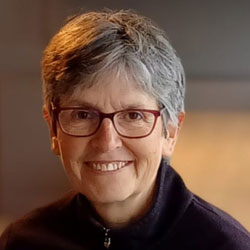Introduction
BAFS welcomes applications for Membership from professionals with qualifications in medicine, science, or the law who have contributed, or are likely to contribute, to the application and practice of the Forensic Sciences. Applicants from within these disciplines who are interested, but lack experience, may be offered Associate Membership. The Academy also appoints Honorary Members and has a category for student or trainee membership at a reduced annual fee.
Forensic Science - What is it?
Forensic science is the application of science to the law, both civil and criminal, although it is mainly employed in criminal law. Forensic scientists work in many different branches, from the crime scene with police forensic staff and scenes of crime officers, through to private forensic providers offering a wide range of services, who analyse items collected as part of a scientific examination of a crime, providing reports and statements to be used in the prosecution of a case. The scientists will often also appear in court as expert witnesses.
How to get into forensic science
A forensic scientist will normally specialise in one of several disciplines such as drugs, toxicology, DNA, digital or environmental forensics. Apprenticeships in forensic science are offered through private forensic laboratories. Ideally individuals wishing to become forensic scientists will have an undergraduate degree in a pure science followed by a master’s level forensic specialist degree. Police staff who work in fingerprint identification, fingermark development or in scene-going departments are frequently trained in-house in their particular specialism.
How does BAFS support forensic science?
BAFS is a truly interdisciplinary organisation that adds a breadth of understanding to the scientist as they engage with others in the forensic arena: lawyers, pathologists, clinicians and psychiatrists amongst others The Academy has a programme of world-renowned speakers and organises specialist technical meetings. Students are encouraged to attend and the meetings are normally free for those studying or in the early stages of their careers. The Academy also offers prizes annually in the three disciplines: medicine, science and the law, and publishes its own journal.
The Main Disciplines Covered by BAFS Members
What is Forensic Medicine?
Forensic medicine covers doctors working in areas including: forensic medical practitioners, forensic pathologists, forensic psychiatrist, medical examiners and medico-legal advisers
What is Forensic Psychiatry?
Forensic psychiatry is a medical specialty that provides assistance to the criminal courts when issues arise as to the mental state of defendants, witnesses and complainants. Read more…
Forensic psychiatry is a medical specialty whose practitioners provide assistance to the criminal courts when issues arise as to the mental state of defendants, witnesses and complainants. It is not to be confused with forensic psychology and it is far removed from television’s Cracker. The term forensic psychiatry also has [for some] a broader meaning insofar as it refers to the medical discipline which can inform all courts and tribunals when issues arise that require elucidation by psychiatrists.
A forensic psychiatrist is a doctor who has spent four or five years at medical school in order to obtain their registrable medical qualifications, who has spent a year or two working as a foundation doctor in a range of hospital specialties and who has then gone on to undertake usually three years of general professional training in psychiatry and then a further three or of four years in specialty training in forensic psychiatry. Most forensic psychiatrists have clinical responsibility for the care of mentally disordered offenders in the community, in local psychiatric hospitals, in regional or sub-regional medium secure units or in high secure hospitals, specifically Broadmoor, Park Lane, Rampton and Carstairs Hospitals. With this clinical experience, they can assist the courts on issues such as fitness to be interviewed by the police and the reliability of confessions; fitness to plead and stand trial; mental condition defences, such as insanity, automatism and lack of intent and the partial defence of manslaughter by reason of diminished responsibility,; the effect of mental disorder on the reliability of witnesses and complainants; and the sentencing of people with a mental disorder where often there are concerns about risk to the safety of the general public or issues as to mitigation on the basis of the offender’s mental health. They also assist in a wide range of types of civil litigation and with issues arising within mental health law.
There are similarities between the forensic psychiatric investigation of a person involved in criminal proceedings and other forms of forensic investigation. Forensic psychiatrists therefore benefit from sharing knowledge and experience with other forensic practitioners. All forensic practitioners need to have a good understand the criminal justice processes and the criminal justice system, the law of evidence, as well as gaining an understanding of the law relevant to any case in which they may become involved. They must also have an understanding of the ethical underpinnings of practice as an expert witness.
Forensic psychiatrists will often give evidence with other specialists contributing as appropriate such neuropsychiatrists, neurologists and epilepsy experts, old age psychiatrists, and child and family psychiatrists, forensic psychologists and neuropsychologists. Cases that often benefit from experts working in tandem include fitness to plead and stand trial, automatism, cognitive disorder, intellectual disability, or the analysis of witness testimony.
As regards Cracker, who dramatically solves crimes by the application of the process of criminal profiling, this is not a process in which all but a handful of forensic psychiatrists have training or experience.
What is Forensic Science?
Forensic science is the application of science to the law, both civil and criminal, although it is mainly employed in criminal law and will often also appear in court as expert witnesses.
Patron - Dame Cressida Dick OBE QPM

Dame Cressida Rose Dick DBE QPM spent over 38 years in public service, holding senior leadership roles in the Metropolitan Police and the Foreign and Commonwealth Office. She served as Commissioner of the Metropolitan Police from 2017 to 2022.
Dame Cressida is a strong supporter of BAFS and she is aware of the importance of investing in forensic science in all aspects of policing and of those who work in forensic sciences. Many of the investigations in which she held leadership roles involved extensive and innovative use of forensics.
She has performed command roles in a large number of responses to major incidents and mass casualty events, including multiple terrorist attacks here and overseas and has taken a keen interest in the development of Disaster Victim Identification.
Join BAFS
BAFS welcomes applications for Membership from professionals with qualifications in medicine, science, or the law who have contributed, or are likely to contribute, to the application and practice of the Forensic Sciences. Applicants from within these disciplines who are interested, but lack experience, may be offered Associate Membership.







